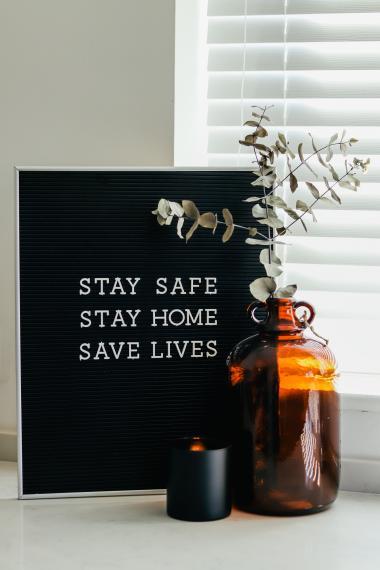6 Tips to Help Cope with Self-Isolation

Around the world, we are facing a unique global challenge that’s testing our resiliency as individuals and communities. Many people are now in self-isolation and looking for suggestions on how to improve their overall well-being at this difficult time.
The World Health Organization (2020), has provided 6 tips for anyone who is asked to be in self-isolation or quarantine. Highlighted below are a few resources you might find helpful for each of these suggestions:
1. Pay attention to your own needs and feelings
- This is an uncertain time for everyone, which can bring normal feelings of fear and anxiety. Use a mental health self-assessment tool to help you determine how you are feeling and to see if further support might be necessary.
- Consider downloading a mental health app to help you check in with yourself daily and determine how you are feeling.
2. Engage in healthy activities that you enjoy and find relaxing
- Set aside some time to unplug from all electronics and social media outlets. Do something fun and healthy for yourself instead. You may want to read a new book, make your favourite recipe, meditate or write in a journal.
- Homewood Health’s Self-Care Kit or the Mental Health Commission of Canada’s COVID-19 Self-Care and Resilience Guide can help you make a plan for integrating self-care practices into your daily life.
3. Exercise regularly
- Walk up and down the stairs, do some stretching exercises, dance to music for a few minutes or take a walk around the block.
- U of G Athletics is offering live-streamed fitness classes throughout the week. Follow "Gryphons_fitness" on Instagram to view the weekly schedule and live-stream the class. The classes are available online for up to 24 hours after they are live streamed.
- Classical Yoga for Total Health and Awareness is being live streamed via WebEx on Tuesdays at noon. The link is emailed out by Lalit to those on his mailing list or can be found on the "events" tab of the Wellness@Work website before the class each week.
4. Keep regular sleep routines
- Kathy Somers from U of G’s Heath and Performance Centre has offered some tips on how to get a better sleep in this blog post.
- Harvard Health has provided daytime and nighttime strategies to promote a better sleep in these uncertain times.
5. Eat healthy food
- Read about Meal Ideas that Support Social Distancing and Eating to Support Mental Well-being from Dietitian Lindzie O’Reilly.
- Learn more about EFAP’s Nutritional Coaching Program in this Q&A interview with an employee who used this resource.
6. Keep things in perspective
- Try one of the Greater Good Science Center’s daily practices to help you keep things in perspective:
For additional online wellness resources, view the COVID-19 Wellness Resources page on our Wellness@Work website.



